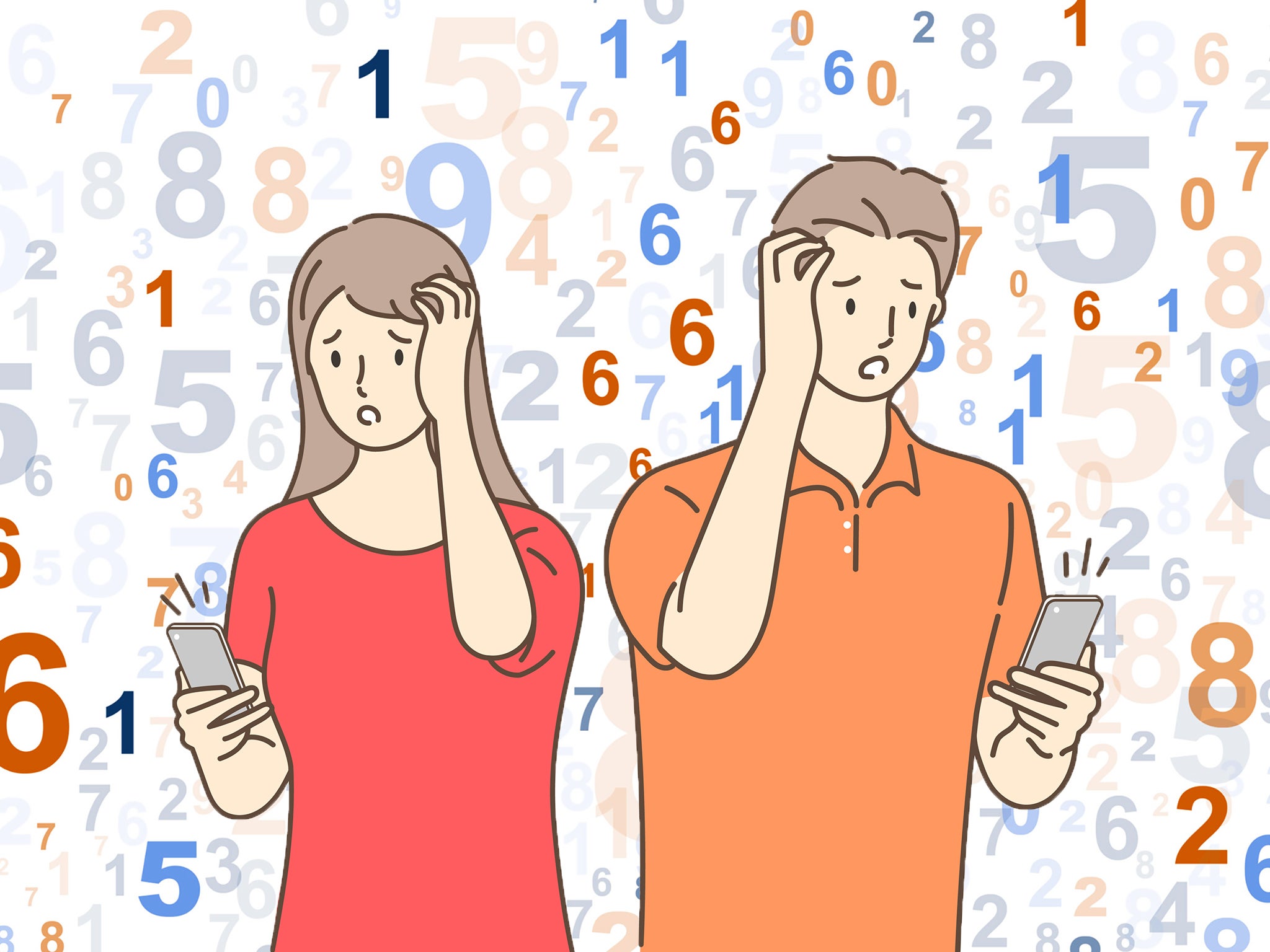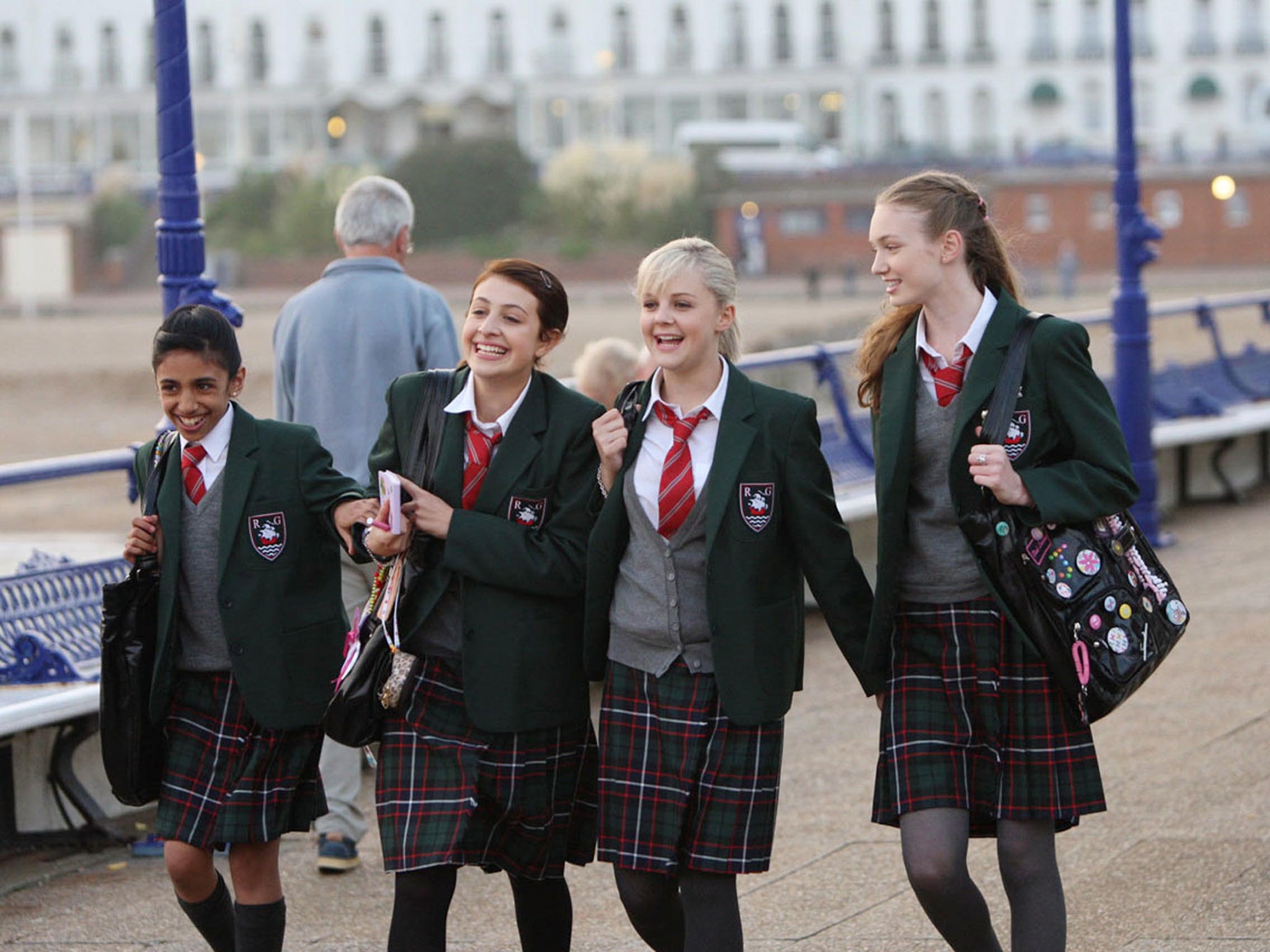‘Four out of 10 with makeup’: Why are so many young people asking to be ‘rated’ online?
Across social media, more and more people are submitting selfies of themselves to have their appearances picked apart and rated by anonymous users. ‘Hot or Not’ sites have a vast digital history, writes Ellie Muir – shouldn’t we know better by now?


Your makeup is a tragedy. Four out of 10.” “Hair is awful. Four out of 10 with makeup. Maybe five out of 10 without.” “Not sure why women think this kind of lipstick looks good.” “What’s going on with those eyebrows? Four point five out of 10.” “Smile!”
This is the constructive advice offered to me on Reddit, a discussion-based social media platform, where I am (willingly) seeking opinions from strangers about my appearance. I’m on “Rate Me”, a sub-page with more than 200,000 members. Here, adults post their best selfies and users ruthlessly score their looks on a scale from one to 10. While some comments from the responding 30 faceless Redditors are more delighting than others – some are, admittedly, mortifying – the overall gist I get from the crowd roasting my appearance is that I’m bearable. Not totally horrendous. On the hot-o-meter – one being grimly grotesque and 10 being an absolute knockout – it’s been decided that I’m a solid four.
This forum is just one example of our obsession with ranking the attractiveness of complete strangers on the internet. A heap of websites are dedicated to this very activity. Search on the Apple Store and you’ll find apps of similar function. People have created “rate me” forums on the popular Q&A website Quora. Switch on Love Island and you’ll hear many of the contestants calling each other “10 out of 10”s. Viral tweets use rankings to poke fun at people’s dating icks: “She’s a 10 but unbuttons her pants when she eats.” Over on TikTok, teenagers are making videos brutally rating their classmate’s appearance out of 10. It’s absolutely everywhere.
For this trend to exist, though, it takes two to tango. Psychologist and sex and relationships expert Niki Davis-Fainbloom tells me that those volunteering themselves to be rated – like myself – are seeking validation. “The need to be perceived a certain way by others is a universal human experience,” she explains. “We all have an innate desire to belong and to be accepted by our peers, and seeking validation through the perception of others is one way that we try to fulfil this need.”
Often, people submit themselves to be rated as a way to try and gauge where they slot into societal beauty standards. This, though, leaves the raters in a position to dish out insults and cruelty under the guise of unrepentant honesty. The origins of “Rate Me” can be traced back to the turn of the millennium and the creation of the now-defunct website Hot or Not, where users could rate the attractiveness of others from one to 10. The site was a key influence on Mark Zuckerberg; his first incarnation of Facebook – called FaceMash – placed images of his Harvard classmates side-by-side for others to judge who was better looking. Hot or Not was the first time millions of people saw themselves reflected in a digital mirror. Staring back at them was the internet’s often harsh opinions of their appearance. It was also the first time that people could publicly offend everyday strangers on a global scale without any real ramifications. The site’s ethos quickly spread throughout the early days of social media.
Ellie, a 24-year-old project officer, remembers spending her blissful post-school evenings participating in “Like for a rate” challenges on Facebook. By posting “Like for rate” as your status, you would score out of 10 everyone who liked the post. “It was so savage,” Ellie remembers. “Literally so toxic.” She recalls spending hours online being numerically judged by her classmates. It brought out the worst in people, she explains. Friendships would be in tatters. Crushes were exposed. Remembering a soft spot she had for a boy who attended a neighbouring school, she recalls pinning her hopes of their future romance on his Facebook status. “I would value myself based on the rating he gave me,” she laughs. “If he gave me below a seven, I would be gutted.”
It’s such a male-dominated sphere. If you’re a woman who takes pride in her appearance, you’ll be rinsed
Sophie, 23, remembers feeling burnt by the more scathing ratings. Like Ellie, she participated in the “rate me” Facebook trend when she was around 12 years old. Sophie would “take note” of the culprits who dealt her a bad rating. When it came to returning the favour, “I would rate them badly too – I guess out of spite.” She says she remains baffled by the ease with which she and her classmates insulted one another in a public forum. “I think we all wanted to be online, so we pretended to be older, which left us in a vulnerable position as a generation,” she says. “I don’t know who gave anyone the audacity and why no one stopped doing it sooner.”
While both Sophie and Ellie say they’re today unscathed by the whole ordeal – finding it more shocking than traumatic – psychologist Dr Lisa Strohman warns that children can “internalise” this kind of criticism, and that it can affect them long into adult life. “Negative feedback can make someone feel self-conscious, anxious or depressed, and can lead to negative thought patterns and self-doubt,” she tells me. Young people are already riddled with insecurity as they grow up, she adds, so a negative rating could shatter a young person’s vulnerable self-esteem.
One example of rating culture at its most savage was laid bare in the 2008 teen movie Angus, Thongs and Perfect Snogging. In it, our hero Georgia (played by Georgia Groome) is left shaken when she receives a cruel score from one of her BBFs at a sleepover. While playing a game with her friends that involves rating one another’s body parts out of 10, Georgia is given a six for her nose. One friend, Jas, says the game is justified: “We have to know ourselves so we know how boys see us.”
Though Jas may sound like a naive teenager, she was onto something. Georgia and her friends weren’t rating each other for the LOLs, or because it was a fun pastime. Rather it was to almost pre-empt what men could think of them, and judging themselves based on a predetermined misogynistic standard of beauty.
“It’s no secret that society has long placed a heavy emphasis on physical appearance, particularly for women,” Davis-Fainbloom tells me. “This can lead to a culture of objectification and superficiality, where people, women especially, are judged and evaluated based on their looks.” A common thread on Reddit’s “Rate Me” page, as well as others like it, is that it’s often women who receive the most vicious criticism – by both men and women. Men typically get an easier ride. On the Reddit forum, women’s appearances are nitpicked, while men are often coddled. “Maybe lose the beard, bro,” replies one person to a male user. “You look healthy, well done.”

This is no surprise considering the history of the platform itself: Reddit is known for being a breeding ground for incel culture, or men who claim to be “involuntarily celibate” and denied the sex that they feel entitled to. Reddit has also had a murky relationship with misogynistic groups in the past. While many of its users are anonymous, men are twice as likely to use Reddit than women, according to the Pew Research Centre.
Sam, a male Redditor who admits to posting his own selfies in “Rate Me”, tells me that the double standard between men and women on the site is glaringly obvious. “It’s such a male-dominated sphere,” he says. “If you’re a woman who takes pride in her appearance, you’ll be rinsed.”
When it comes to my own rinsing, I’ve made peace with my four out of 10. What doesn’t sit right, though, is how comfortable we have become with jabbing at people on the internet that we’ll never actually meet in reality. In an anonymised world where the worst-case repercussion for a hurtful comment online might mean a (likely temporary) ban from a site, it seems the ruthlessness of our honesty has no end. But maybe that’s its very appeal.
Join our commenting forum
Join thought-provoking conversations, follow other Independent readers and see their replies
Comments


Bookmark popover
Removed from bookmarks